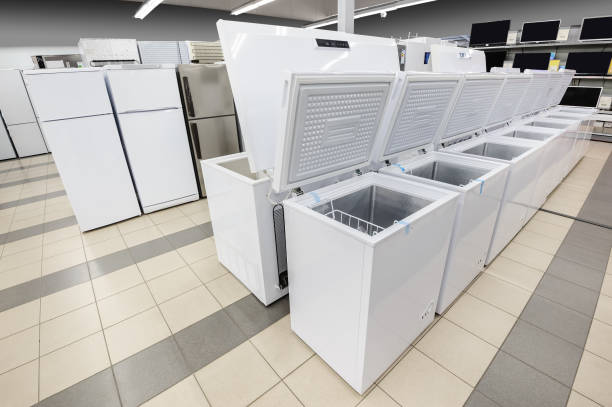When outfitting a busy foodservice operation, selecting the right commercial chest freezers is a strategic decision that can impact efficiency, food safety, and energy costs. In this article, we’ll explore key considerations—from capacity to layout to maintenance—and help you make an informed choice that aligns with your operational goals.
1. Understanding the Role of Commercial Chest Freezers
Commercial chest freezers serve as workhorses in professional kitchens, catering operations, and large-scale food storage environments. Unlike residential freezers, these units are designed for high volume, rapid access, frequent opening and closing, and maintaining temperature stability under heavy load. Choosing one means balancing size, energy use and durability so it can keep up with daily demands.
2. Capacity & Layout: How Much Space Do You Need?
One of the first questions to ask is: how much volume do you need? Freezer capacity is typically measured in cubic feet (or liters). Consider your inventory turnover, the type of food stored (bulk ingredients vs. packaged goods), and how often you’ll access the unit.
- A larger model offers flexibility, but may increase energy costs and floor footprint.
- A smaller unit may save space and power, but could constrain storage and require more frequent transfers.
In terms of layout, lid-type chest freezers provide full opening access and stack-ability, whereas sliding-door designs save aisle space. Think about movement patterns: can staff access items easily, are aisles clear, is the unit placed for efficient workflow?
3. Temperature Performance & Energy Efficiency
When you buy a commercial chest freezer, you’re investing in consistent freezing temperature across the interior even under heavy use. Look for features like:
- Robust insulation and tight seals
- High-quality compressors and fans designed for continuous duty
- Clear internal organization so doors aren’t left open for long
- Energy-saving features such as auto–closing lids or built-in defrost timers
Energy efficiency isn’t just about lower electricity bills. Reliable performance means fewer temperature swings, less spoilage, and better product quality.
4. Durability, Materials & Maintenance
The kitchen environment demands appliances built to last. A good commercial chest freezer will have:
- A stainless steel or heavy-duty metal exterior and interior for easy cleaning and hygiene
- Durable hinges, gaskets and lids or doors designed for frequent use
- Simple, accessible service points (for filter changes, defrost systems, fans)
Maintenance is critical: regular cleaning, gasket inspection, and loading practices all influence longevity. Don’t neglect the importance of ease of maintenance when choosing your model.
5. Placement, Workflow & Accessibility
Location matters. A well-placed chest freezer ensures staff can reach it easily without blocking walkways or other equipment. Consider:
- Door or lid swing and how it affects surrounding space
- Proximity to the point of use (prep stations, cold rooms, storage racks)
- Lighting and visibility inside: good lighting means faster retrieval and less energy waste
- Ventilation: ensure sufficient airflow around the unit to prevent overheating and optimize compressor life
6. Total Cost of Ownership
While sticker price matters, think in terms of total cost of ownership over the lifecycle:
- Purchase price + shipping + installation
- Energy usage (power consumption, insulation efficiency)
- Maintenance and parts (compressor replacement, gasket wear)
- Down-time cost (if the unit fails, what’s the impact on operations?)
Choosing a slightly higher-quality model now often saves money (and headaches) down the road.
7. Choosing Models & Features Wisely
When evaluating models, compare the following:
- Size (cubic feet) vs. your storage need
- Lid style (flip-top vs. sliding) and aisle impact
- Interior layout (bins, baskets, dividers) for better organization
- Service access and warranty support
- Brand reputation and availability of local service/parts
It’s also wise to match model features to your business type (restaurant, catering, grocery, institutional kitchen). A grocery environment may emphasize visibility and merchandizing; a restaurant might prioritize speed and staff access.
8. Bringing It All Together
Choosing the right commercial chest freezer isn’t just about picking the largest unit available. It’s about thoughtful alignment of capacity, efficiency, durability, workflow, and cost. Take the time to evaluate your storage needs, floor space, staff interaction and long-term maintenance. Select a model that supports your operation rather than constrains it.
In Conclusion
At EMS Global Appliances, we understand how critical reliable, high-capacity cold storage is to your business. From “grab-and-go” retrieval to bulk inventory preservation, our selection of commercial chest freezers can help you maintain product quality, streamline staff workflows and lower total cost of ownership.
